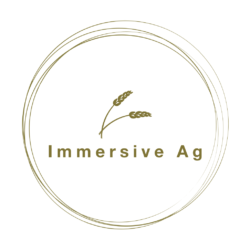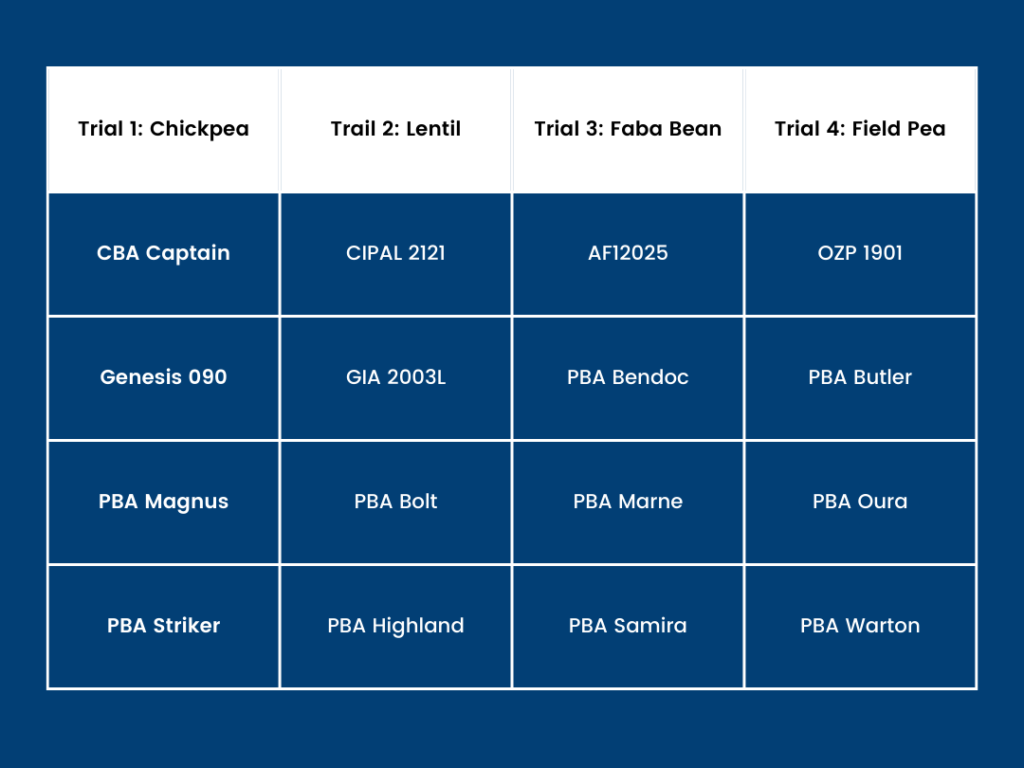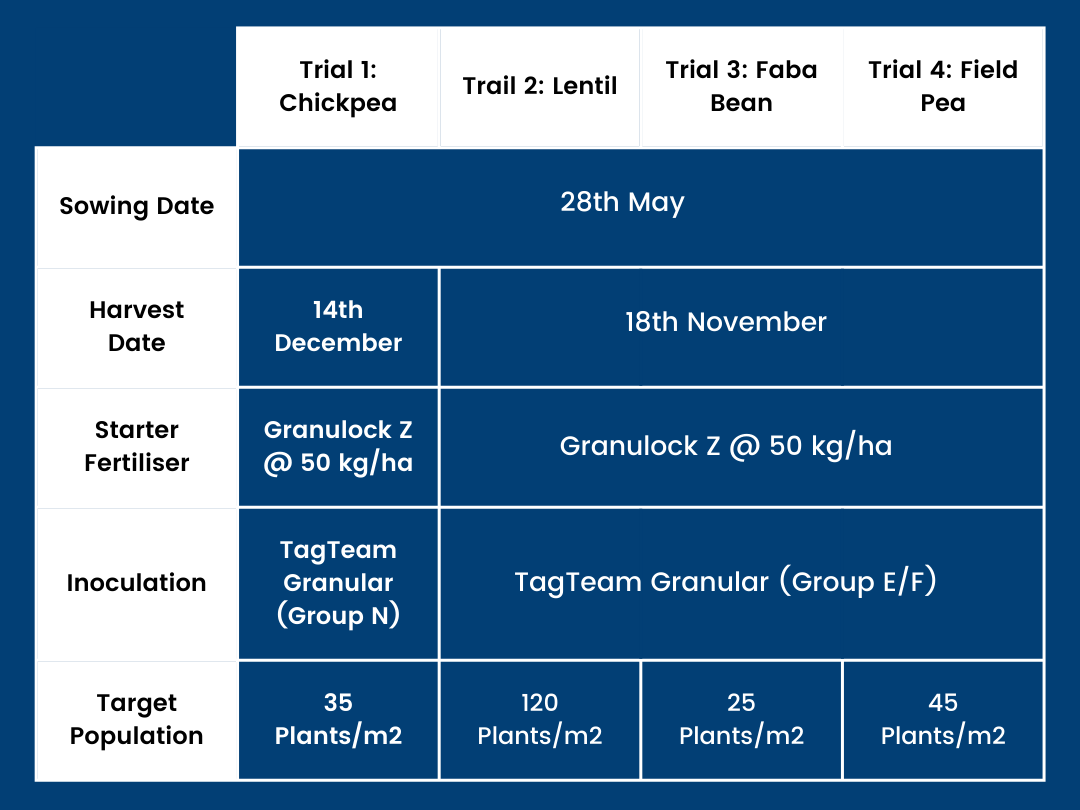Background and Method
Research over the previous two seasons (2019-2020) had shown that deep ripping led to substantial yield increases for most pulse crops grown on deep sands where pulse productivity is normally constrained.
Four separate trials were established on a sandy soil near Tempy in 2021 to continue to investigate the potential for deep ripping to increase the production of pulse crops grown on deep sandy soils within the Central Mallee region.
3d Model of the Central Mallee Tempy site, Captured August, 2021
360 Virtual Tours
A virtual experience was created on 5th of October, 2021 for each pulse crop in this trial
Results
Deep ripping resulted in significant yield increase for each crop (Figure 2-5).
For all pulse crops sown in our Central Mallee 2021 trial, the average grain yield produced was approximately 0.5 t/ha without ripping.
Crops sown following deep ripping, average grain yields were close to 1.5 t/ha for chickpea, field pea and faba bean. Average grain yield for lentils were 1 t/ha.
The percentage yield increase for each crop is shown below:
- Chickpea: 236%
- Faba Bean: 161%
- Field Pea: 131%
- Lentil: 79%
For each of the four pulse crops in this trial four different varieties were grown.
The variety selection has only affected grain yield in field peas, varieties PBA Butler and OZP1901 produced higher grain yield than the variety PBA Oura.
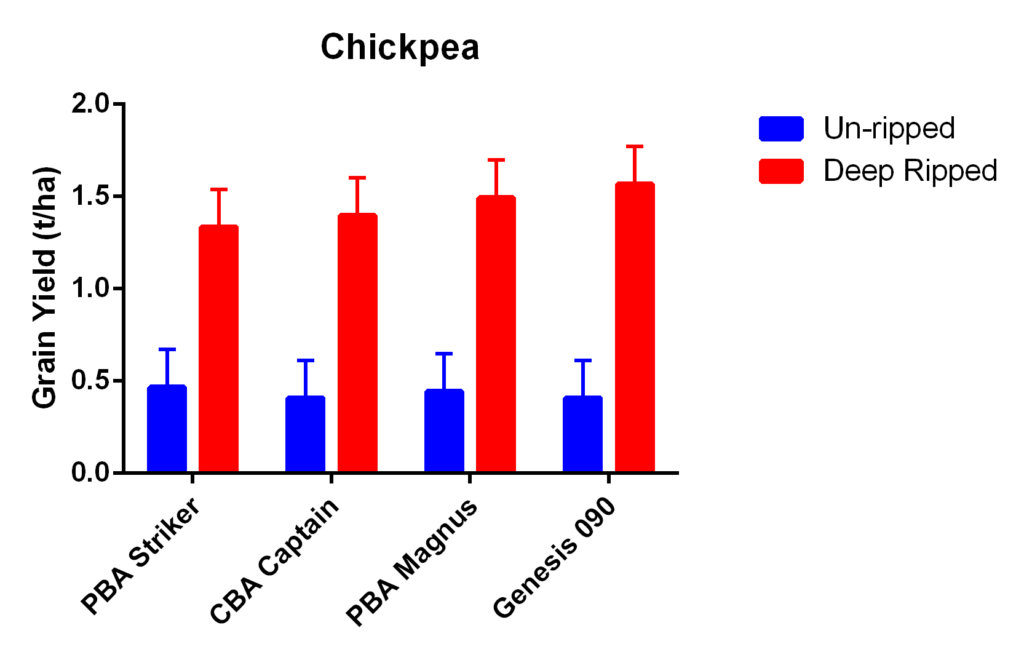
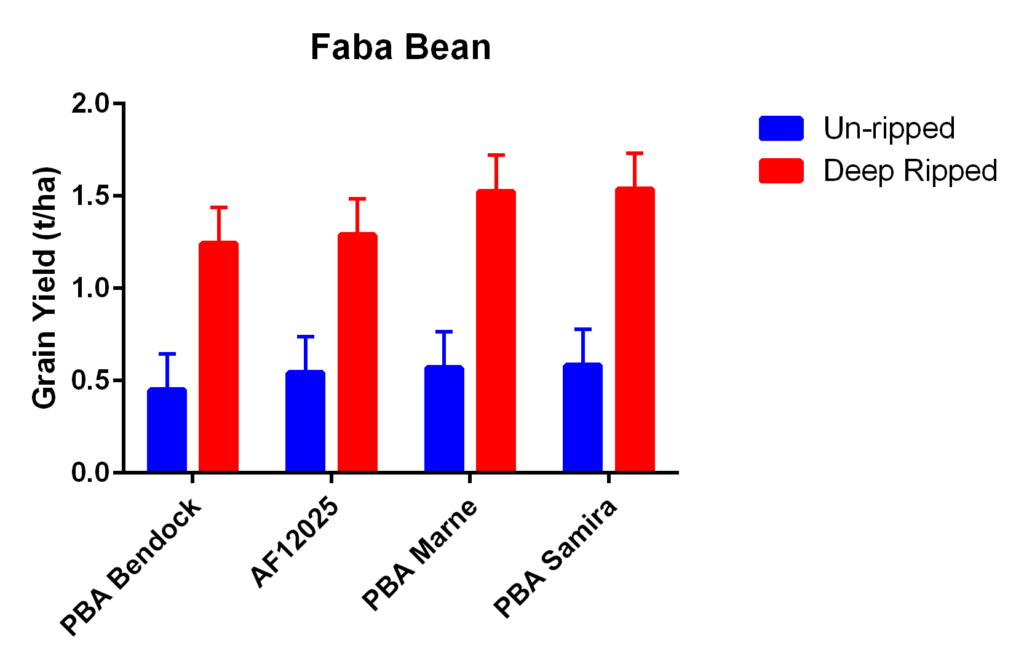
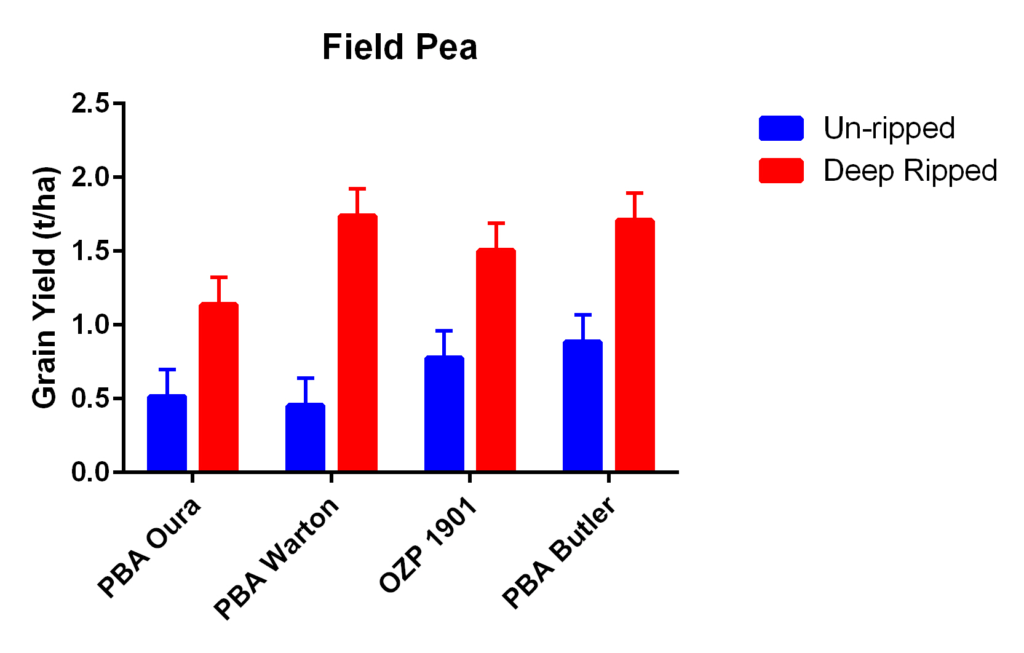
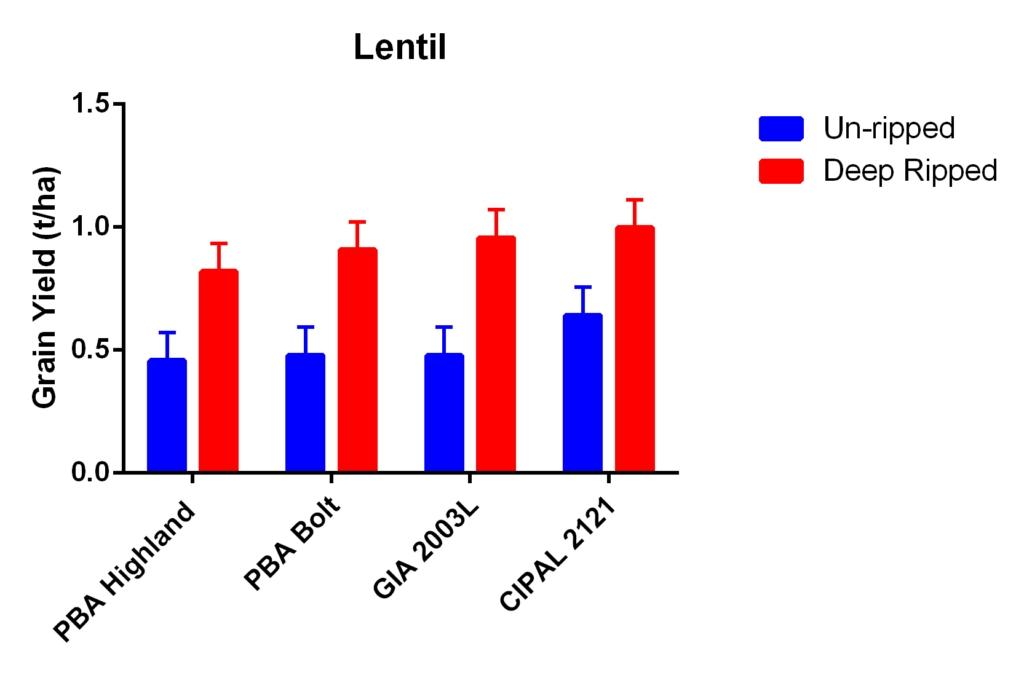
Acknowledgements
This virtual field day has been developed as part of the Mallee Sustainable Farming (MSF) project:
“Facilitating enhanced knowledge sharing of Mallee sustainable farming practices”
This project is supported by the Mallee Catchment Management Authority with funding from the Australian Government.

The research featured in this virtual field day was completed as part of the Southern Pulse Agronomy project which is funded by the Grains Research and Development Corporation (GRDC) and Agriculture Victoria. The trials are a collaboration between Frontier Farming Systems and Agriculture Victoria

